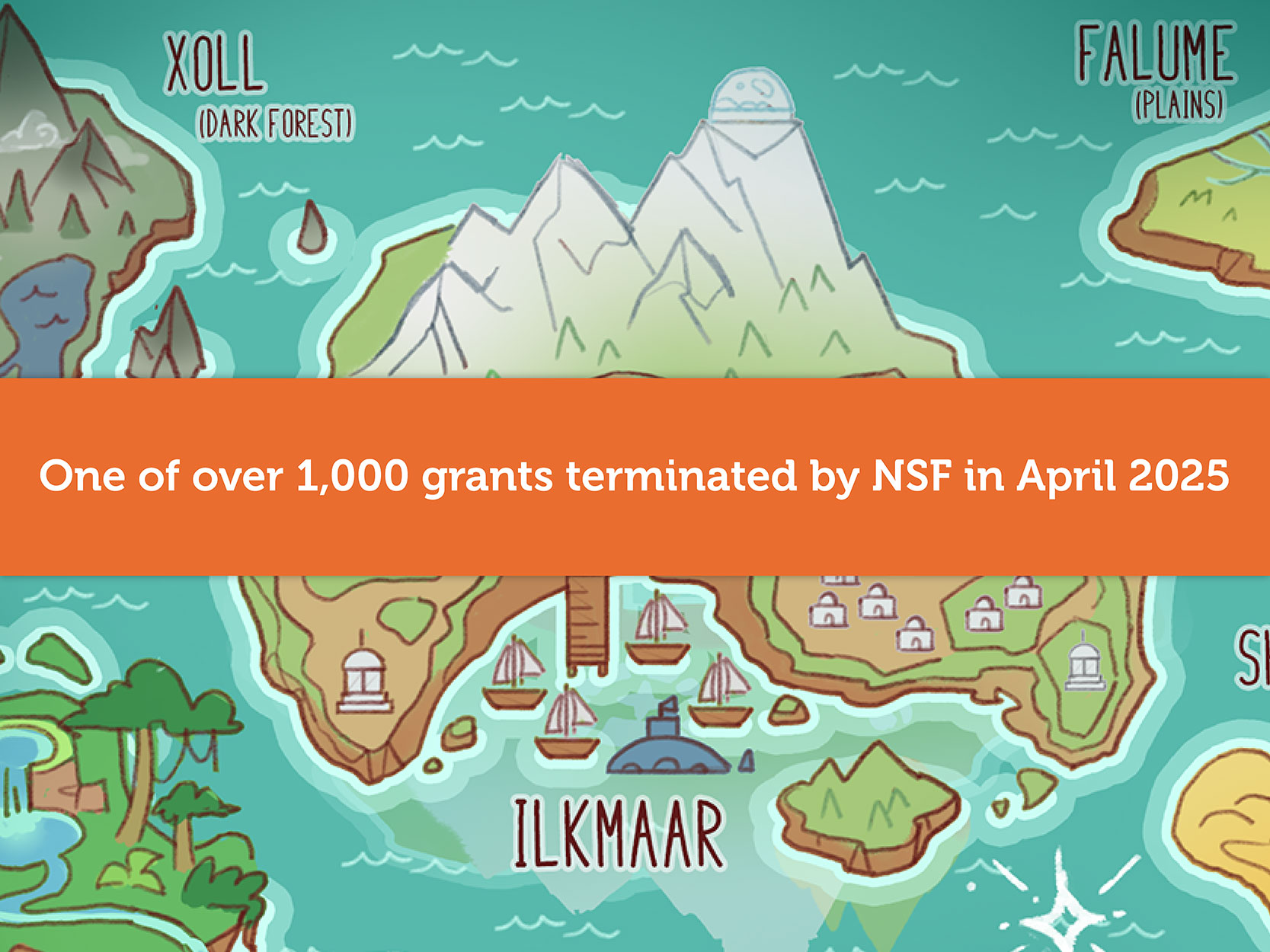For many nonprofit organizations and institutions of higher education, recent Fridays have been overshadowed by a sense of dread. For four successive Fridays—April 18, April 25, May 2, and May 9—over 1,400 National Science Foundation (NSF) awards were abruptly terminated in enormous weekly batches. (There were a few letters of termination on other days of the week, then another massive cluster on Thursday, May 15.)
We’ve had only one NSF grant terminated so far.

The project—Data Science Learning Experiences for Middle School-aged Girls in Informal Gaming Clubs—aimed to promote interest and aspirations in data science through a multiplayer game in which players use game-created data to solve in-game challenges and ultimately to create a more diverse and inclusive generation of data scientists.
It’s a huge loss.
For us. For informal educators who ran afterschool clubs. For the young girls who had befriended the fantastical creatures in the “Isles of Ilkmaar” game and who were really excited by the data they had created—data about the food preferences of the islands’ inhabitants, the time of day they ate, what made the creatures of the diverse and magical biomes sick, ingredients to cure them, and more. Data that was meaningful to the girls. Data that they were learning to analyze and to share.
It’s also a loss for the field. Because the project was terminated, we will no longer get to fully explore:
- how data-rich, multiplayer games can engage middle school-aged girls in generating, analyzing, and interpreting data together
- how to best leverage social gameplay to enrich informal data science learning experiences
- how girls’ perceptions of their fit with data and data science develop through gameplay and club experiences
- how data-rich gameplay and club participation can improve girls’ attitudes toward and interest in data science and data-rich futures
Why NSF funding matters
As we wrote recently, NSF funding has allowed us to develop transformative educational technology for teachers and students, design learning experiences that help students use the tools and methods of real scientists, offer professional development for teachers that supports STEM knowledge and practices and sustains a STEM workforce pipeline, and much more.
The National Science Foundation has been a bedrock of American innovation since 1950. Every time you use a GPS, check the weather, access the internet, or benefit from medical imaging technology, you are experiencing the long arc of NSF-funded progress.
And although our project was terminated early, informal data science education embedded in a fictional multiplayer game is an important—though, unfortunately, not fully realized—part of that arc.
So the next time you see your child or student exploring a graph, participating in an afterschool activity, or diving into a multiplayer game with friends, remember the transformative potential of educational research—and the importance of continuing to support it. NSF’s role is vital.